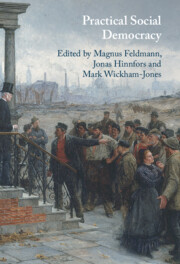Refine listing
Actions for selected content:
1299955 results in Books

Oncologic Emergency Medicine
- Clinical Cases Illustrating Key Concepts
- Coming soon
-
- Expected online publication date:
- March 2026
- Print publication:
- 31 March 2026
-
- Book
- Export citation

Nuer Messianic Judaism
- Truth and Mediation in the Ethiopia-South Sudan Borderlands
- Coming soon
-
- Expected online publication date:
- March 2026
- Print publication:
- 31 March 2026
-
- Book
- Export citation

Charting Transfiction
- Patterns, Open Questions, and Future Directions
- Coming soon
-
- Expected online publication date:
- March 2026
- Print publication:
- 28 February 2026
-
- Element
- Export citation
Myth, Text and Image in Ancient Mesopotamia
- A Narrative Reading of the World
- Coming soon
-
- Expected online publication date:
- March 2026
- Print publication:
- 31 March 2026
-
- Book
- Export citation

Building Capacity for Public Engagement on Solar Geoengineering
- Coming soon
-
- Expected online publication date:
- March 2026
- Print publication:
- 31 March 2026
-
- Element
- Export citation

Configuring Psychology
- Access to Therapy and the Transformation of Psychological Care
- Coming soon
-
- Expected online publication date:
- March 2026
- Print publication:
- 31 March 2026
-
- Book
- Export citation

Practical Social Democracy
- Coming soon
-
- Expected online publication date:
- March 2026
- Print publication:
- 31 March 2026
-
- Book
- Export citation

Seminars in Perinatal Psychiatry
- Coming soon
-
- Expected online publication date:
- March 2026
- Print publication:
- 31 March 2026
-
- Book
- Export citation

Institutional Health Communication in the Information Age
- Coming soon
-
- Expected online publication date:
- March 2026
- Print publication:
- 31 March 2026
-
- Element
- Export citation

Vulnerability and Relational Equality
- Coming soon
-
- Expected online publication date:
- March 2026
- Print publication:
- 31 March 2026
-
- Book
- Export citation
Reason and the Good in Leibniz, Kant and Hegel
- Theodicies of Freedom
- Coming soon
-
- Expected online publication date:
- March 2026
- Print publication:
- 31 March 2026
-
- Book
- Export citation
Democratic Drain
- Global Migration and the Struggle for Democracy
- Coming soon
-
- Expected online publication date:
- March 2026
- Print publication:
- 31 March 2026
-
- Book
- Export citation

The English Language on Trial
- Witnessing Disputed Meanings in American Courts
- Coming soon
-
- Expected online publication date:
- March 2026
- Print publication:
- 31 March 2026
-
- Book
- Export citation

Language as Power in the Language Teacher Education Ecosystem
- Coming soon
-
- Expected online publication date:
- March 2026
- Print publication:
- 31 March 2026
-
- Element
- Export citation

Immigration and Borders in Ancient Egypt
- Coming soon
-
- Expected online publication date:
- March 2026
- Print publication:
- 31 March 2026
-
- Element
- Export citation

A Practical Guide to Time Series Analysis
- Coming soon
-
- Expected online publication date:
- March 2026
- Print publication:
- 31 March 2026
-
- Book
- Export citation

Iris Murdoch and the Transcendent
- Coming soon
-
- Expected online publication date:
- March 2026
- Print publication:
- 31 March 2026
-
- Element
- Export citation

Humanistic Management and Leadership
- Coming soon
-
- Expected online publication date:
- March 2026
- Print publication:
- 31 March 2026
-
- Element
- Export citation

Interlanguage Grammars of Mandarin Chinese
- Coming soon
-
- Expected online publication date:
- March 2026
- Print publication:
- 31 March 2026
-
- Book
- Export citation
Paul's Letter Openings
- An Analysis of High-register Language
- Coming soon
-
- Expected online publication date:
- March 2026
- Print publication:
- 31 March 2026
-
- Book
- Export citation
